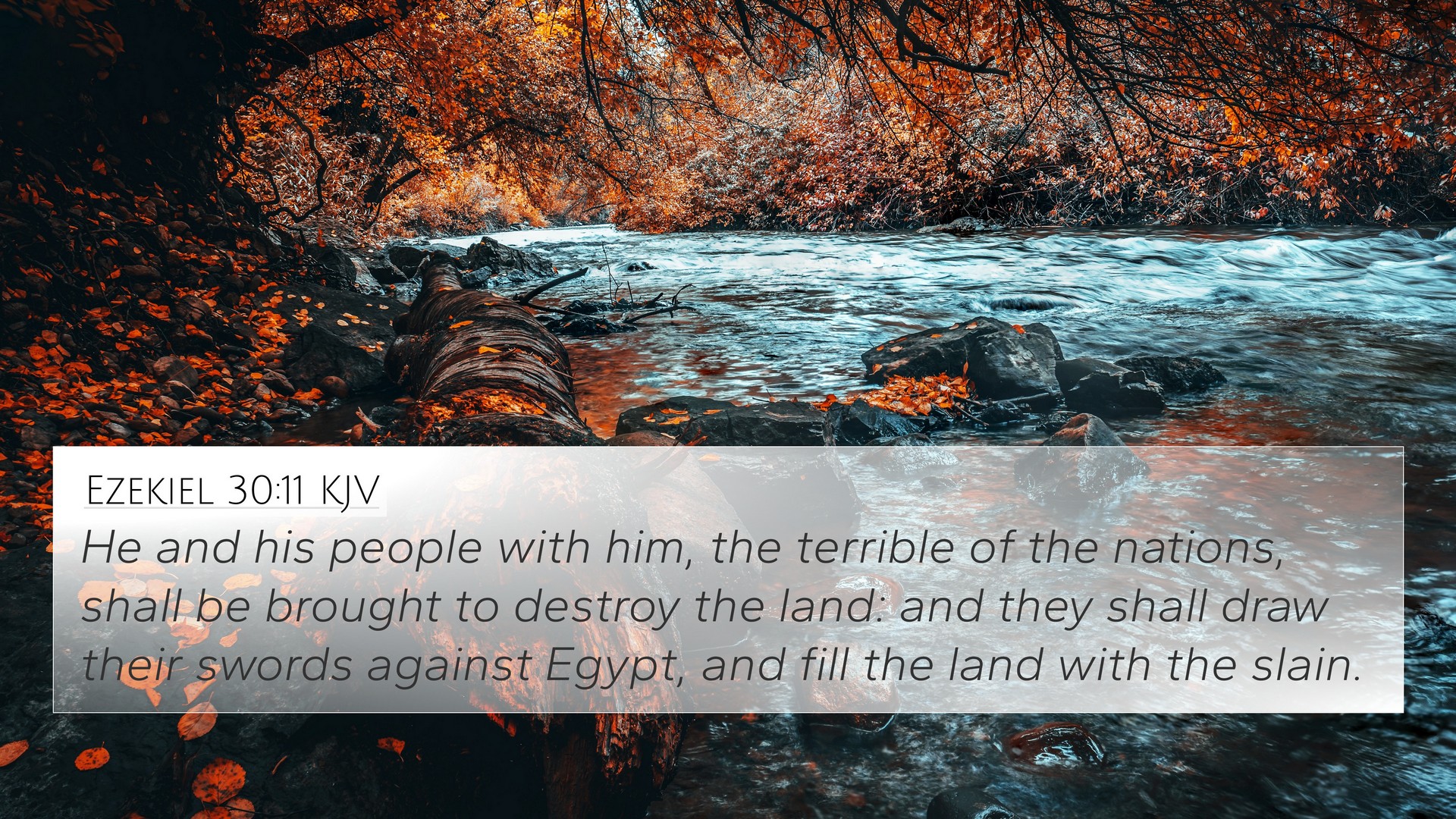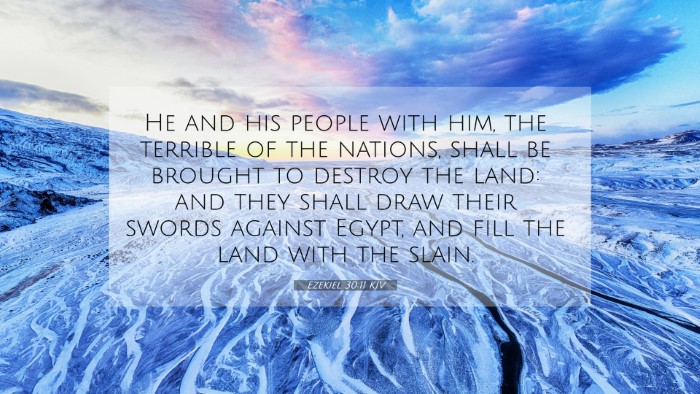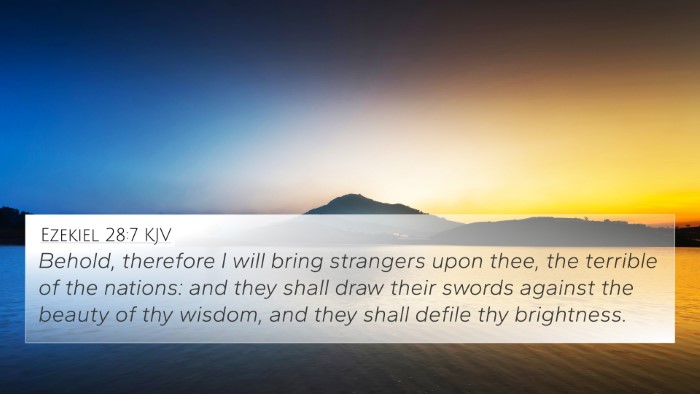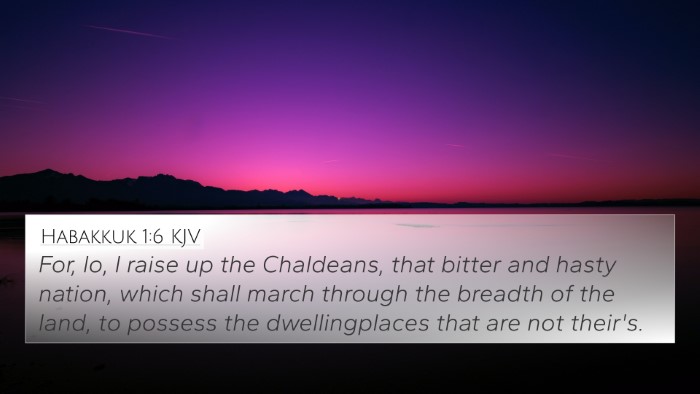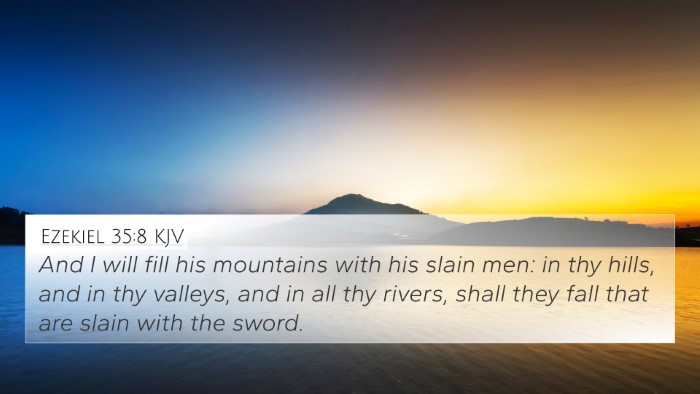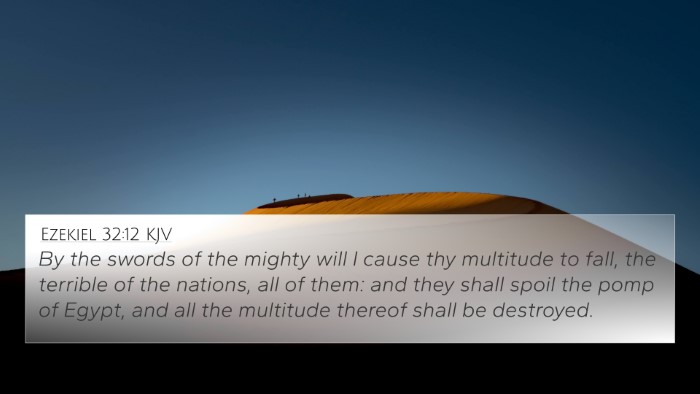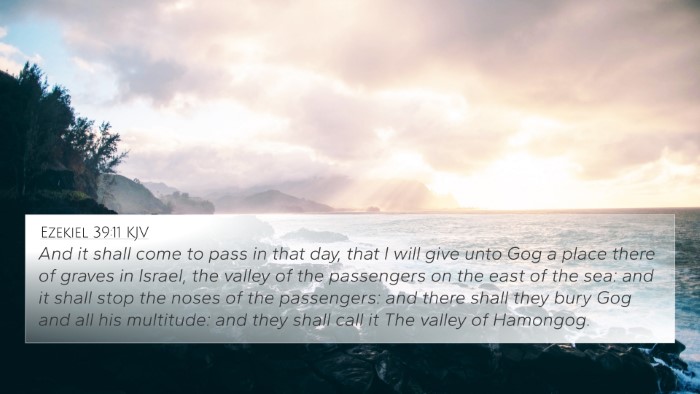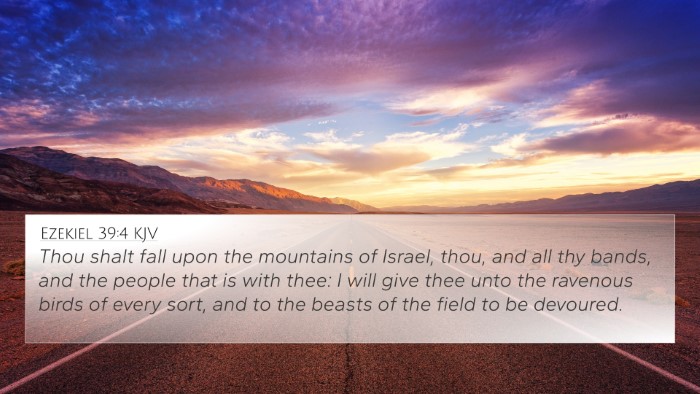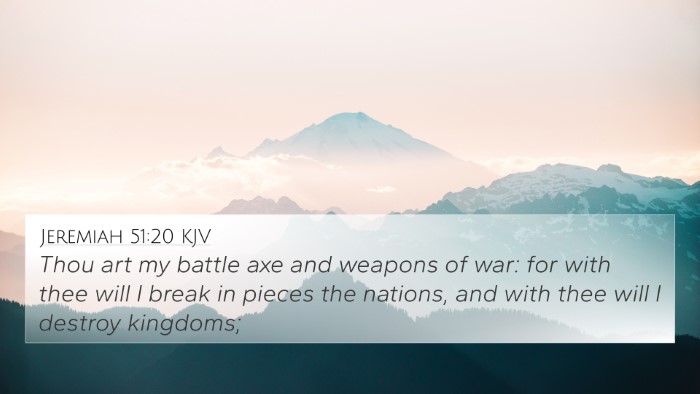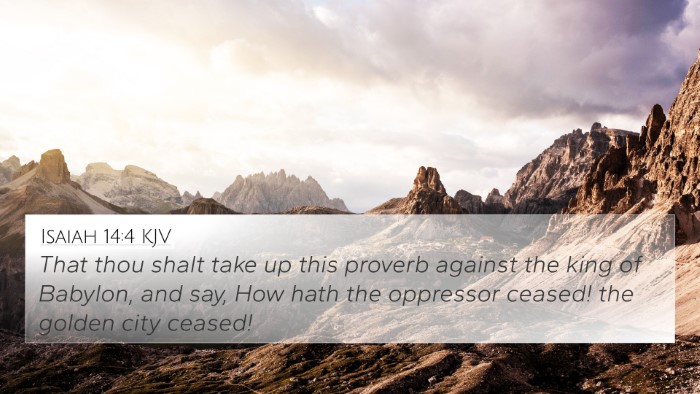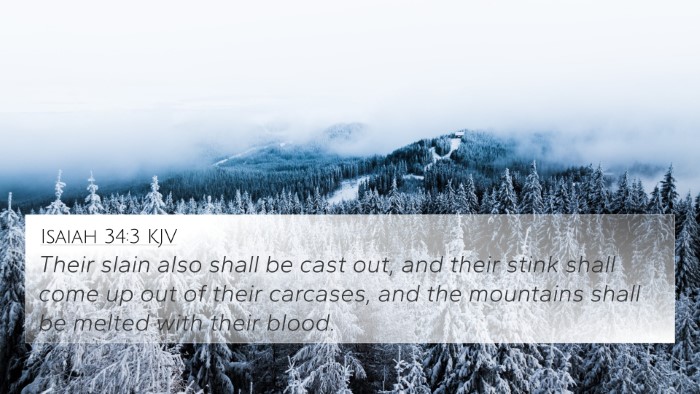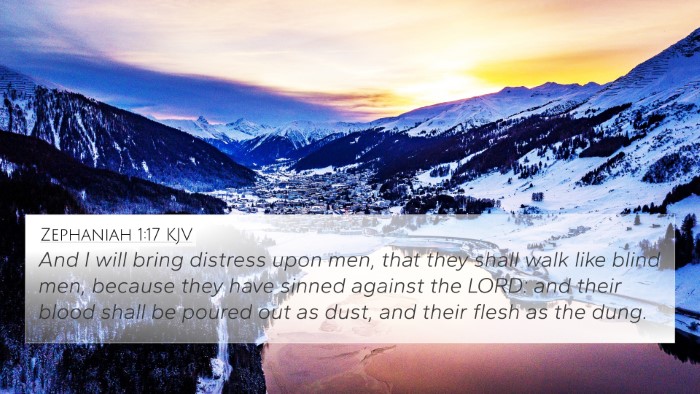Ezekiel 30:11 - Verse Meaning and Interpretation
Ezekiel 30:11: "He and his people with him, the terrible of the nations, shall be brought to destroy the land: and they shall draw their swords against Egypt, and fill the land with the slain."
Overview
This verse comes as part of a prophecy against Egypt, highlighting God's judgment through the instrument of foreign nations. The phrase "terrible of the nations" indicates a powerful adversary, suggesting a significant military threat. Ezekiel proclaims Divine sovereignty in orchestrating this calamity, emphasizing that it is not mere human conflict but a divinely decreed event.
Commentary Insights
-
Matthew Henry:
Henry elucidates this verse as a testament to God’s control over nations and their destinies. The term "terrible" signifies not only the fear these nations instill but also their relentless nature in conducting God's will. God uses them as agents of destruction and, consequently, judgment against Egypt’s arrogance and idolatry.
-
Albert Barnes:
Barnes views the mention of swords and the resultant slaughter as a stark reminder of the consequences of sin and rebellion against God. He notes the seriousness of the prophetic declaration – that Egypt, a once-glorious empire, would face utter ruin through violent means, emphasizing a theme of divine retribution.
-
Adam Clarke:
Clarke highlights the significance of "filling the land with the slain" as indicative of divine judgment. He emphasizes the completeness of the devastation, which serves as a warning not only to Egypt but also to all nations about the repercussions of turning away from God. Clarke connects this event to God's broader plan for Israel and the nations.
Theological Implications
This passage provides insight into several theological themes:
- God's Sovereignty: The verse underscores God’s ultimate authority over kingdoms and nations, demonstrating that He can raise up and cast down rulers and empires as He wills.
- Judgment: It reminds readers that there are consequences for nations that practice idolatry and sin, positioning God as both sovereign and just.
- Divine Instrumentality: God often uses one nation to bring judgment upon another, showcasing a complex interplay of human actions and divine purpose.
Cross-References
This verse finds connections with several other scriptures that enhance its meanings:
- Jeremiah 46:8-12: Details the judgment against Egypt by Babylon, echoing themes of destruction.
- Ezekiel 29:6-7: Highlights God's judgment on Egypt, reinforcing Ezekiel's prophecies.
- Isaiah 19:1: Proclaims the downfall of Egypt by a fierce army, connecting it to divine judgment.
- Revelation 16:12: Illustrates the broader theme of God's judgment through various means across history.
- Zephaniah 2:13-15: Affirms God's plans against the nations and their ultimate fate.
- Jeremiah 25:15-29: Discusses nations drinking from the cup of God's wrath, illustrating judgment on a global scale.
- Amos 1:6-8: Prophecies concerning various nations, including Egypt, demonstrating God's relational judgment.
Conclusion
In summary, Ezekiel 30:11 serves as both a cautionary tale and a prophetic declaration about God's power to judge and discipline nations. The insights drawn from public domain commentaries help illuminate the prophetic severity of God's message. These interpretations not only guide understanding of this particular passage but also contribute to a broader comprehension of biblical themes, particularly concerning judgment and divine sovereignty.
Understanding inter-Biblical dialogue through cross-referencing these verses enables readers to grasp the interconnectedness of biblical narratives and themes. The thematic Bible verse connections crafted through comparative Bible verse analysis serve to deepen knowledge of God’s dealings with nations and individuals.
Further Study Suggestions
For those looking to delve deeper into the subject matter, consider the following:
- Utilizing a Bible concordance or Bible cross-reference guide can assist in finding related verses.
- Explore cross-referencing Bible study methods for a more comprehensive grasp of the text.
- Engage in Bible cross-reference for sermon preparation, allowing for deeper theological discussions.
- Investigate the inter-Biblical dialogue by identifying connections between Old and New Testament themes.
